Here’s a true story about some people who divided themselves and ruined everything good they ever had. Am I referring to our modern state of affairs? No, I’m talking about Easter Island: the one with those famous stone heads called the Moai.
Archaeologists generally agree their story goes like this: a seafaring people arrive on a lushly forested island and start carving Moai to honor their ancestors. As the population grows the trees dwindle and with less natural resources tribal warfare ensues. Each clan carves more Moai, vying for the favor of their ancestors. The continued infighting leaves the island indefensible against an outside attack and sure enough European explorers eventually show up on the island’s shores. After that complete collapse.
The Moai still stand today. They’re a big tourist attraction. Monuments to the tribalism that destroyed the island (though that’s probably not on the brochure).
This all happened on the most remote inhabited island on the planet. But you know who understood these perils just as well? George Washington.
Seventy-four years after Europeans arrived on Easter Island and five-thousand miles away, Washington delivered his farewell address, having voluntarily given up the presidency after only two terms. In it, he said:
Let me now warn you in the most solemn manner against the baneful effects of the spirit of party . . . it agitates the community with ill-founded jealousies and false alarms, kindles the animosity of one part against another, foments occasionally riot and insurrection. It opens the door to foreign influence and corruption, which finds a facilitated access to the government itself through the channels of party passions.
Some triggering words in there. You feel those party passions?
Now—I’d like to pause here—to point out that Washington wrote this in 1796, long long long before our modern political parties were even a glimmer in some hungry politician’s eye. Washington’s whole speech is worth reading (if you don’t mind some dense language), but it seems to me the main moral of the story is that whatever side you’re on we must be increasingly wary of that spirit of party.
As the ancient Easter Islanders might tell you, devotion to tribalism is a one-way ticket to societal destruction. Their Moai stand in commemoration to that truth. But, believe me, we’re building statues here, too.
Rather than stone, though, our monuments are made of flesh. As the islanders imbued their statues with honorific magic, so do we deify our politicians—talisman shaped not by hammer and chisel but by the desire to see our most fervently held beliefs come to life.
Except that, for the most part, I don’t think this is true. Most people don’t worship politicians. And yet, if you didn’t know any better, you might think that’s the case based on the news coverage from nearly every angle, mainstream or otherwise.
Even if we’re not complicit as individuals in the making of these people, a whole lot more of us join in on taking them down. During the tribal wars on Easter Island, all of the Moai were knocked over, many destroyed. And here we are doing the same thing to politicians in every corner of the United States.
I’m not saying politicians don’t deserve to be voted out; and this is certainly no absolution of anyone who willingly enters the political machine. It’s only to say that, like the Moai, politicians are merely vessels for the power we the people give them.
In other words, it’s hard to blame the politicians in a representative democracy for doing their job—representing us. These figureheads are merely condensed and compacted versions of ourselves, contradictory, confused, and fickle as any individual, multiplied by a few million voting constituents. You cannot blame the Moai for people carving them into being and you can’t blame the politicians for what we’ve crafted them to be. Of the people isn’t some bullshit phrase.
But if you take away the politicians, then what is left but us? And our party passions burning. Clan against clan in a zero-sum game, right? As George Washington said, this is a dangerous road we travel.
So what can we do about it?
What we do as individuals drives what we do as a people. If we want a civil society, then that will take civility on a personal level.
I’ve written before that I work with a large cross-section of society which means, among other things, interacting with a wide-ranging set of political viewpoints. On the job, we are there for the common goal of building a fine house—and that allows us to see beyond our differences for the sake of the greater good.
Whether it’s building a house or building a country, it’s the we versus me attitude that matters. Not to say we ought to agree on what the end vision looks like, but a well-meaning discussion footed in curiosity not animosity will get us a whole lot closer to building a kind of homeland we all want.
By the way, you know what happens to tradesmen who decide they want to be assholes on my jobsite? They get fired. And I’m convinced that most people on the internet should be fired for being assholes in this national conversation. Then maybe politicians wouldn’t be such assholes either.
But again, this starts with us as individuals. So my unsolicited advice: get off the fucking phone and talk to someone in real life who might think differently than you. Find something in common—it’s there!—and if you feel yourself thinking this is a lost cause, remember the Moai.
We’re either going to build a real community here or keep building statues—and by now we know damn well where the latter leads.
-Martin
*Learned this phrase from the conductor of a miniature children’s train in Naples, Florida. Feels spot on for the yakamoochi we have in store this year.
And on another note . . .
I got the chance to read a story about my career as an ice cream man in front of some real live people last weekend. Very cool crowd. Thanks to Story Collective for making it happen.


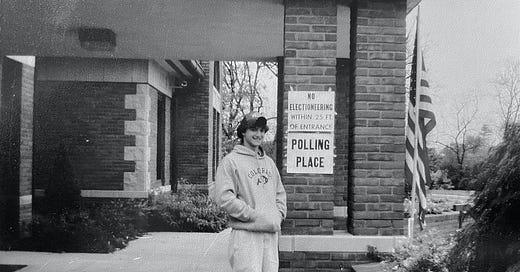



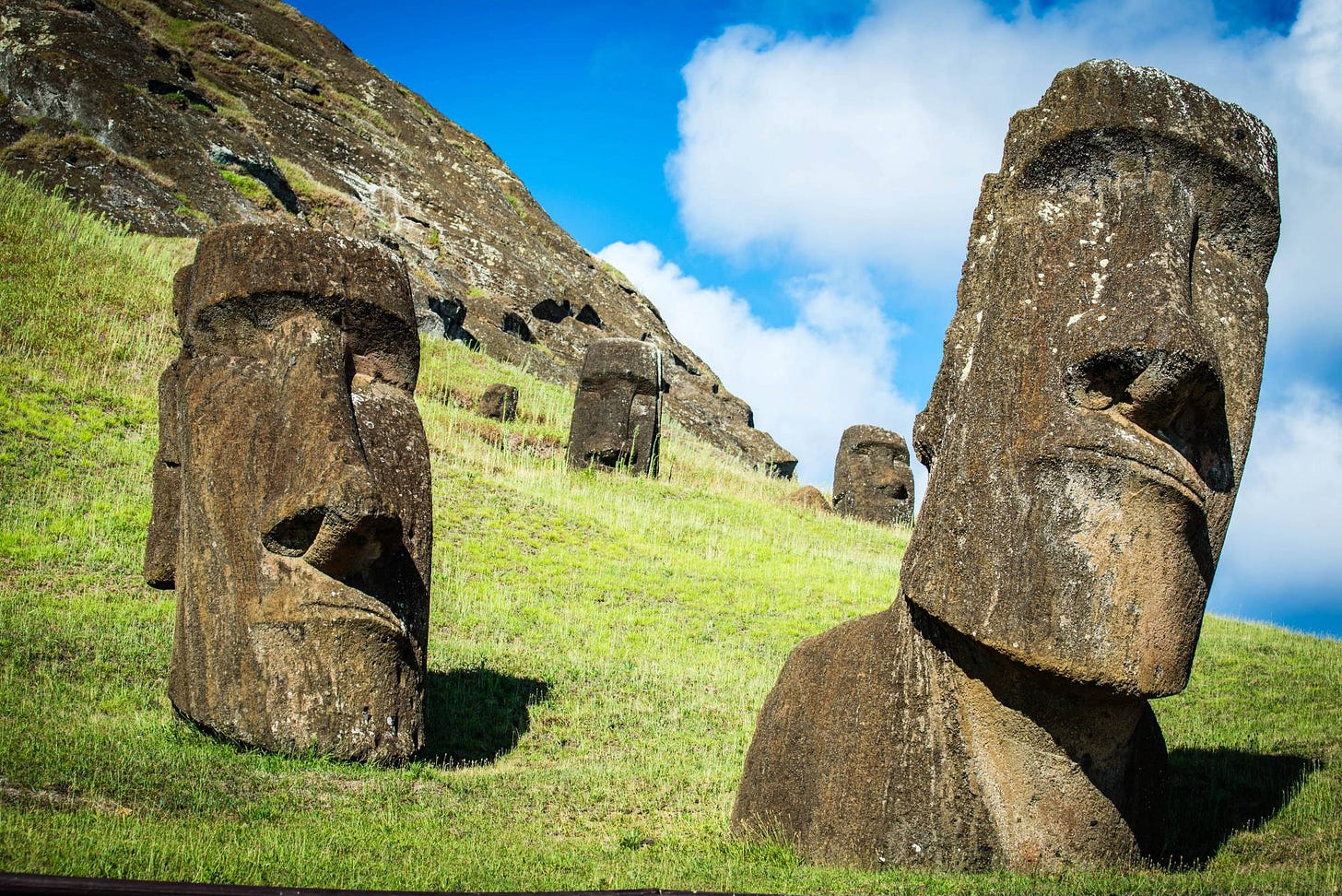
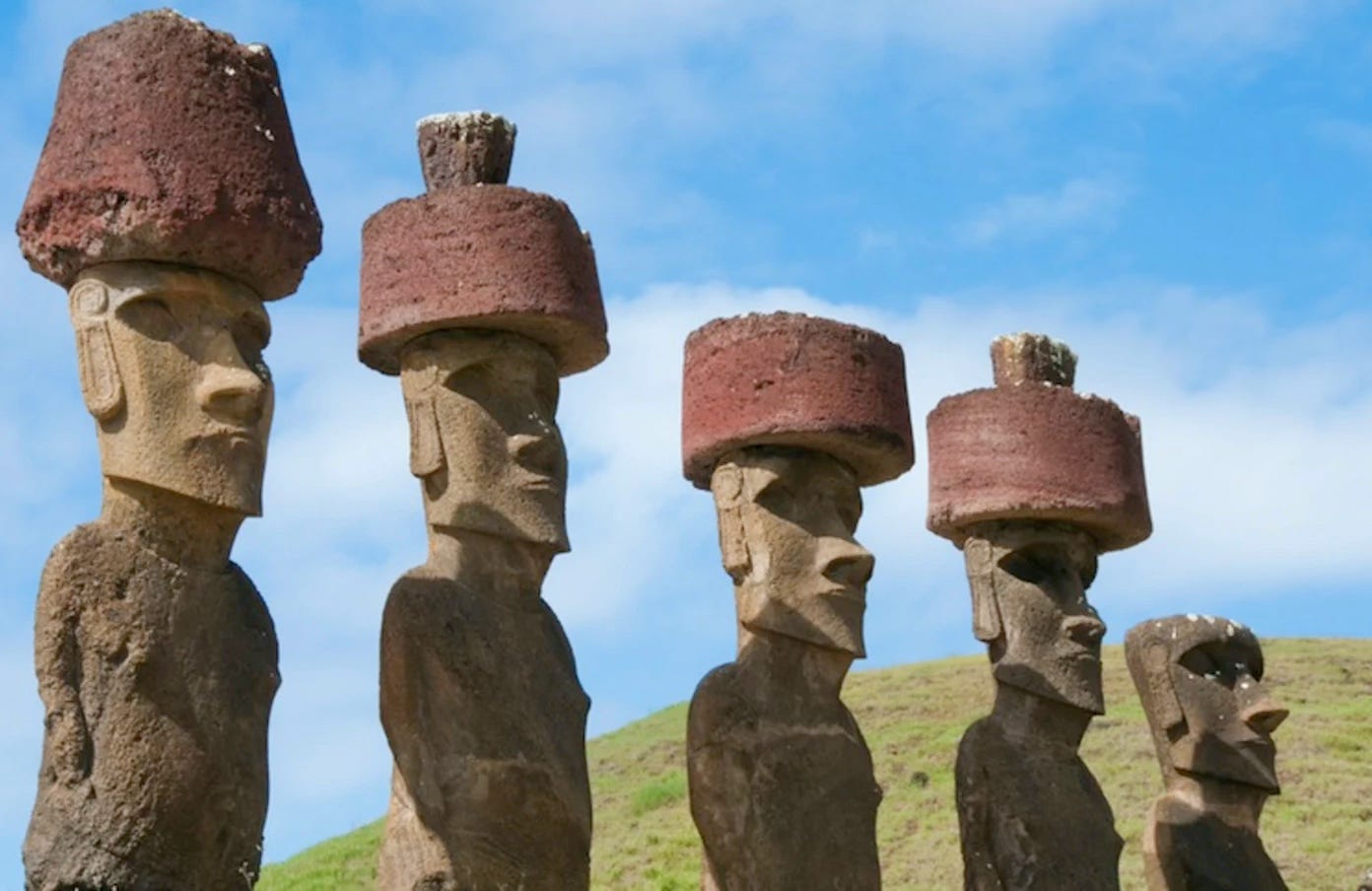
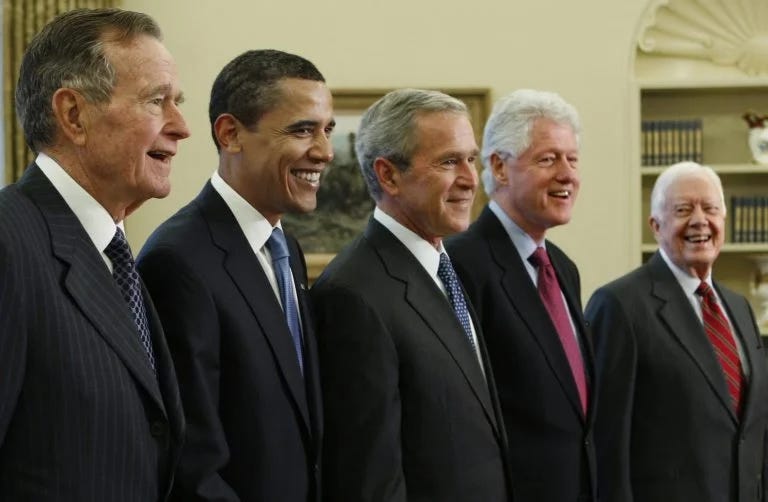
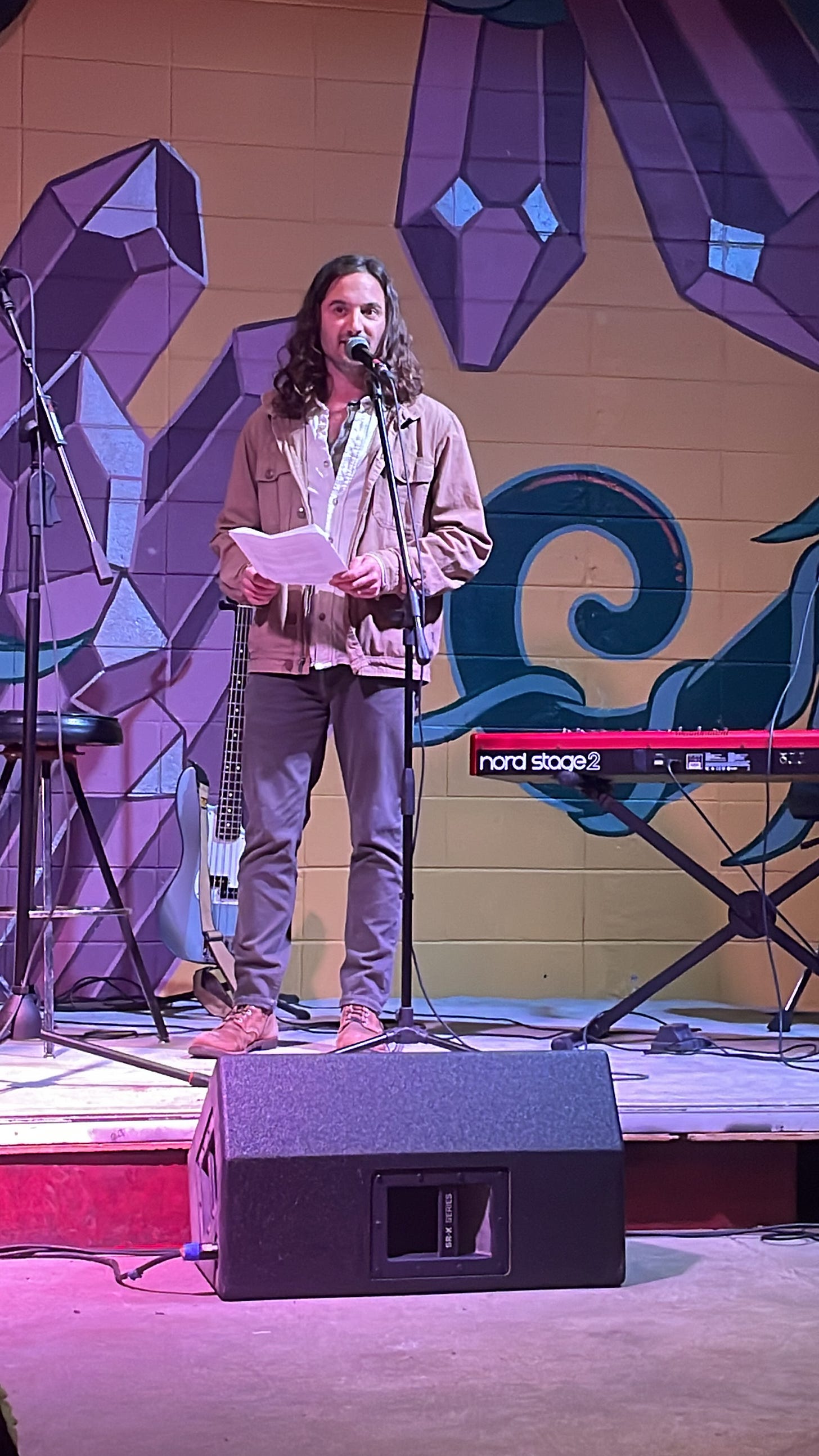
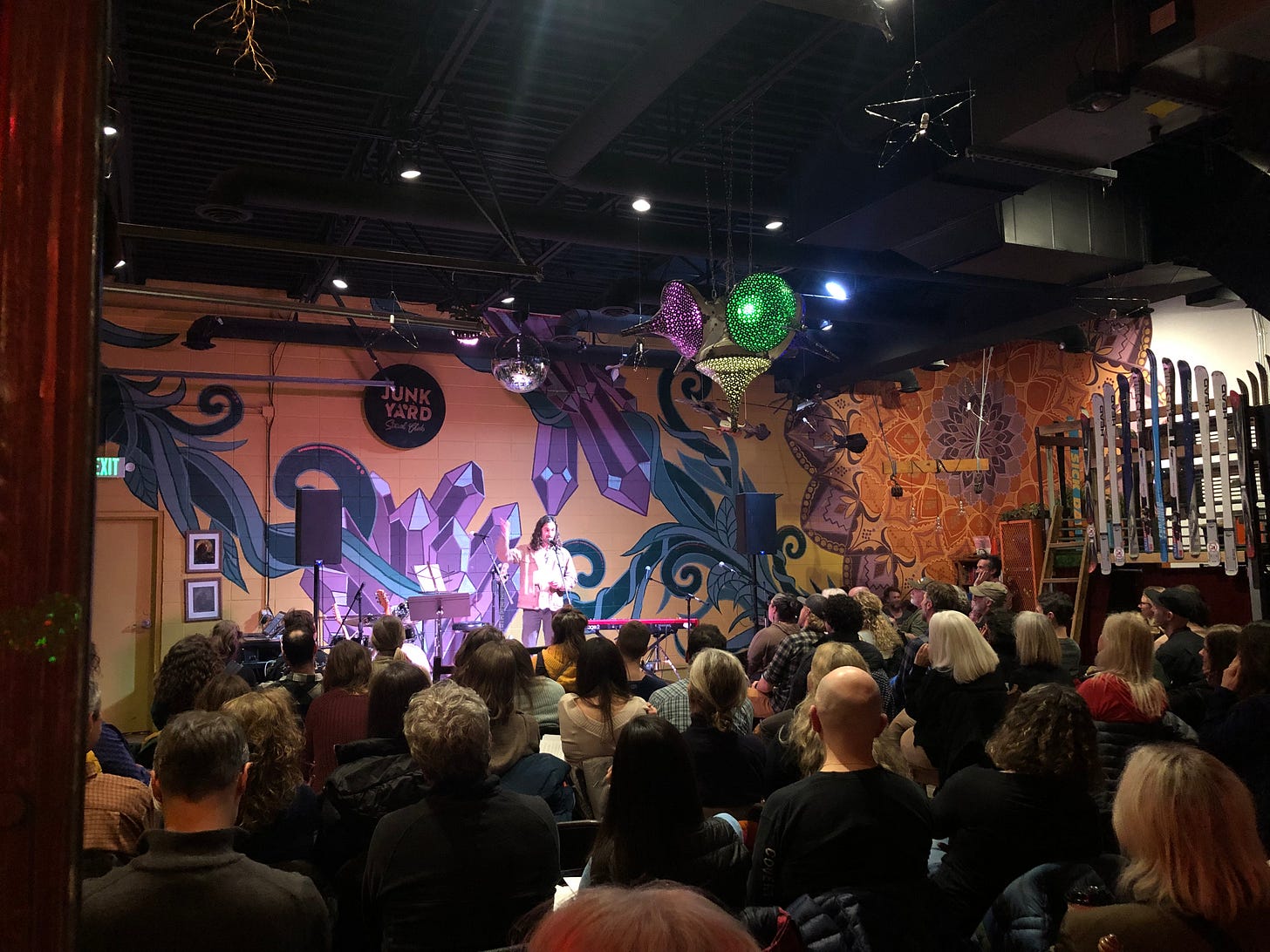
It seems that our society has abandoned civil conversations, at least as far as politics are concerned. It’s sad and will eventually destroy our country if we don’t take personal responsibility and be open minded to accept different opinions. Agree to disagree, but, at least: Let’s talk.
Unfortunately todays society has emerged as individualistic, self serving, and uncharitable. We look to categorize and join groups that point out differences rather than show similarities.
How do we convey that it really feels good to do and give to others, rather than receive. Where has altruism gone? The satisfaction that comes with working hard, raising a family and contributing to society in any way we can is something that needs to be ingrained.
I agree, it starts with us as individuals.
As you stated we need to take it down to a personal level and have conversations with individuals who totally disagree with you or have a different view point and I can still be friends with you! One way to change the hatred and divisiveness that plagues our country is through the future generation. As parents we need to teach and show our children that we need to make a concerted effort to make the world a better place. We need to convey the message no matter how privileged people are they are no better than anyone else. This starts at an early age. I feel the more we expose them and show by example the better. We must learn to find common ground and work together. It may not feel like much but shaping the next generation is a challenge and it starts right in our own homes.